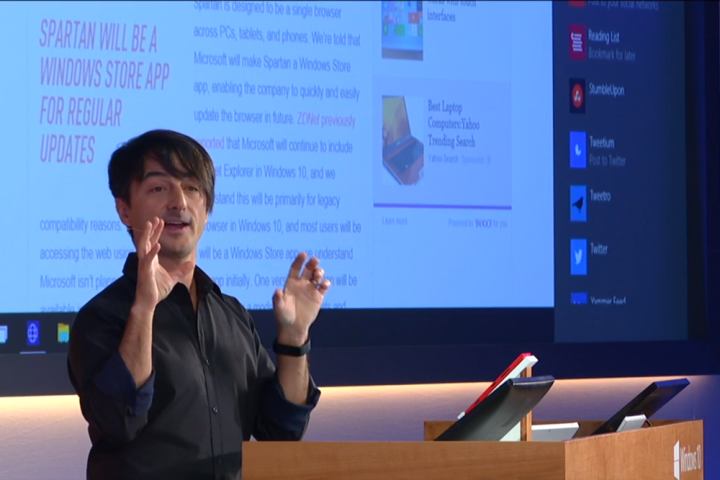
The Consumer Preview release, pushed out to community helpers on January 23, is receiving a trio of hotfixes, two of which specifically “prep for next build,” according to the always candid Gabriel Aul. Meanwhile, the third, numbered KB3034682, is possibly the most essential for OS stability.
Or rather stability concerning a certain Windows 10 component that refuses to die. Internet Explorer continues to require in-depth security work, despite a smoother, lightweight Project Spartan gearing up to take its place as Microsoft’s core web browser.
Both versions 9 and 11 of IE are addressed in the new patch, which sadly leaves one or two more minor glitches standing. Oh, well, there’s always a next bundle of hotfixes, in this case no doubt slated to roll out as part of the larger software package to replace Technical Preview build 9926.
There is no official word on the digit combination that follows 9926, or imminent new features, add-ons and UI tweaks. We feel confident in predicting an early Spartan flavor will become available to previewers by the end of the month, given how polished the browser already looked when MS first showed it off.
Overall though, it’s probably best to keep expectations low. Consider it the downside of the shorter waiting period.
Editors' Recommendations
- Microsoft plans to charge for Windows 10 updates in the future
- Microsoft Build 2023: the biggest announcements in AI, Windows, and more
- Windows 11 2022 Update: the best new features to try out today
- After 10 years of headaches, I’m finally a believer in Windows on ARM
- Windows 11 might pull ahead of Windows 10 in one key way


